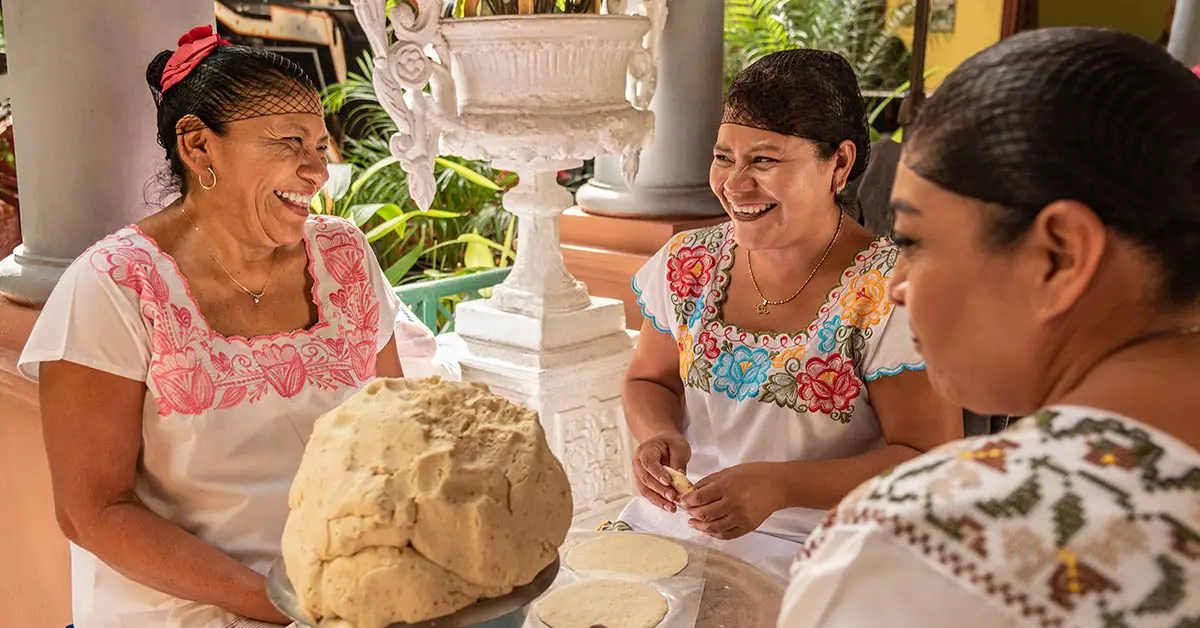Mexico is the sixth-highest honey producer worldwide. (1) Much of that honey is produced by indigenous Mayan beekeepers, most of them women who are considered to be the guardians of the endangered melipona bee. (2) When Monsanto threatened to bring genetically modified soybeans into their regions, Leydy Pech, a Mayan beekeeper fought back. Not only did she defeat Monsanto, but she won the 2020 Goldman Environmental Prize for her work. (1)
Indigenous Mayan Beekeeper Defeats Monsanto
Leydy Pech is a 55-year-old indigenous Mayan beekeeper who successfully prevented the agrochemical company, Monsanto, from planting GMO soybeans in seven Mexican states. (1) She won the “Nobel” for the environment and is the 2020 Goldman Prize Recipient of North America.
Her story dates back to the year 2000 when Monsanto began growing experimental plots of genetically modified (GMO) soybeans in Mexico. The GMO soybeans are known as “Roundup Ready” soybeans. (3)
Monsanto modified Roundup soybeans have a genetic tolerance to Roundup (glyphosate).
Roundup in Mexico
A decade later, the Mexican government moved these experiments forward to “pilot projects”. Two years later in 2012, they approved Monsanto to grow these seeds in seven Mexican provinces without the local Mayan communities. (3) These provinces include (3):
- Campeche
- Chiapas
- Quintana Roo
- San Luis Potosi
- Tamaulipas
- Veracruz
- Yucatan
Very quickly those crops contaminated the Campeche honey. Pech knew it was only a matter of time before other provinces experienced the same problem. (3)
Specifically, these seeds were threatening the population of the Mayan melipona bee. This is a bee with no stinger already at high risk for extinction but is crucial to the Mayan honey production. Ancient Mayans considered this bee to be a gift from the gods, and groups of Mayan women have been the guardians of this bee ever since. (2) Leydy Pech is one of them.
Sin Transgenicos and the Lawsuit
Pech put together a coalition of beekeepers, NGOs, and environmentalists to form Sin Transgenicos (No GMOs) in June 2012. With the backing of the group, she filed a lawsuit against the Mexican government in an attempt to stop Monsanto from planting the GMO soybeans. (3)
The lawsuit was successful based on the fact that both Monsanto and the Mexican government broke convention 169 of the Mexican Constitution of the International Labor Organization. This constitution states that indigenous communities must be consulted about anything the government or other organizations wishes to do on their land. (3)
Next Steps
Halting the planting of these GMO soybeans wasn’t enough for Pech and Sin Transgenicos – their goal was to stop the project altogether and prevent Monsanto from ever planting in their regions again. (3)
With the help of The Autonomous University of Barcelona, Pech documented the effect of GMO soybean cultivation on the bees, the honey, the environment, and the people. The university studied the honey from Campeche, home to the pilot project. The results showed the GMO soy pollen in the Campeche honey. (3)
Along with the UN Development Program, the university also studied the impacts of the primary ingredient in Roundup Ready, glyphosate. They not only found traces of the herbicide in the local water supply, but also in the urine of the people living there. (3)
Outreach and Education
From there, Pech and Sin Transgenico launched a campaign to educate the government officials and the local communities about the negative effects of Monsanto’s GMO soybeans. (3) They organized (3):
- Workshops
- Petitions
- Protests
Thanks to their hard work, Mexico’s supreme court ruled in November 2015 that the government legally has to consult the indigenous Mayan communities before planting the GMO soybeans in their regions. The vote was unanimous. (3)
Finally, in September 2017, the Mexican Food and Agricultural services took back Monsanto’s permits to grow the soybeans in all seven states. (1)
Not Done Yet
This was a huge win for Pech and all of the indigenous Mayan communities in Mexico. Unfortunately, their work is not done yet. Illegal planting still occurs in the regions and several legal details need to be ironed out. The Mayan communities must continue to work hard to protect their land, their people, and their bees. (3)
Keep Reading: Evolution Hasn’t Stopped: This is what the Human Face Might Look Like in the Future
Sources
- “Mayan activist-beekeeper wins international environmental prize.” Mexico News Daily. December 2, 2020.
- “Indigenous women save the sacred Mayan bee.” Global Giving. Fundacion por una Nueva Solucion.
- “Meet Leydy Pech, the Mayan Woman Who Stopped Monsanto and Won the ‘Nobel For the Environment’.” Entrepreneur. December 1, 2020.

